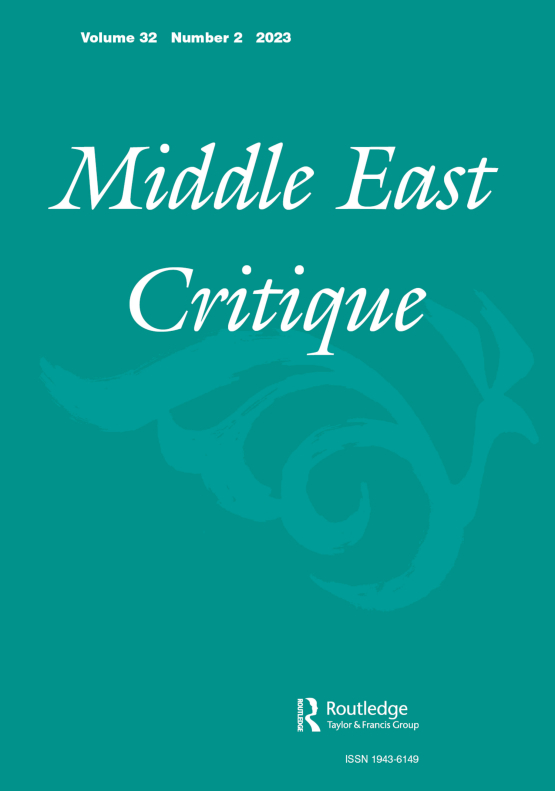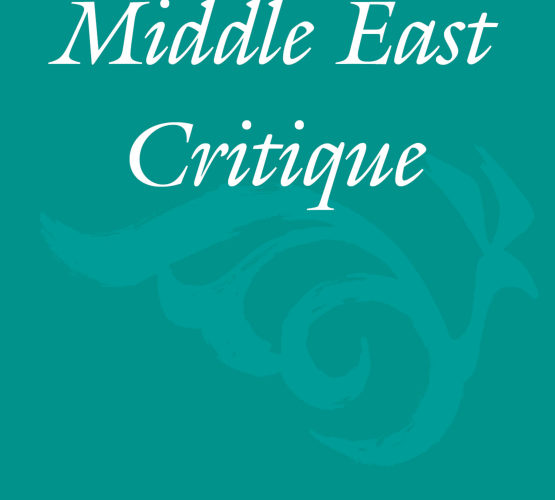
Revista: Middle East Critique
Edición especial:
US Imperialism from the Middle East to Latin America after the Cold War
The consolidation of US-led Imperialism has shaped the historical construction of Latin America and the Middle East as regions of the Third World/Global South. American interventionism during the Cold War to contain Soviet influence through coups against nationalist governments turned militaries into central political actors in countries such as Brazil and Egypt. After the Cold War, the War on Drugs in Latin America and the War on Terror in the Middle East took the place of Soviet communism as the biggest external threat to the US. These have enabled the expansion of US-led imperialism and the promotion of violent measures for the pacification of popular and insurgent movements in these regions.
Western racism operates transnationally through links between the Latino-Favela trafficker and the Arab-Muslim terrorist as omnipresent threats. These representations justify and legitimize US imperialist actions against national sovereignty in these regions. The US media has a central role in representing Latinx, Arab, and Muslim populations as menaces to national security and Western values. Numerous racist securitization tactics aim to contain immigration from these regions. Israeli and American arms and security companies are the ones who benefit most from building this fear. The export of Israeli border control technology to be used on the US-Mexico fence is a clear example. The Iran-Contra case demonstrates Israel’s long-lasting involvement in the sale of weapons and military training of counter-revolutionary forces in Latin America.
US imperialism also acts through the influence of the dollar, neoliberal economic doctrines, and international financial institutions. September 11, 1973, and 2001 were two paradigms for the coercive expansion of neoliberalism in Chile and Iraq, respectively. They are examples of what Naomi Klein called the “shock doctrine” that enabled the expansion of neoliberalism throughout the Global South. The US has encouraged foreign debt and austerity through the Fed, the IMF, think tanks, and universities, which has allowed Western capital to expropriate the markets and assets of countries in these regions. Neoliberal economic orthodoxy has kept Latin America and the Middle East underdeveloped and dependent on the export of primary goods. National elites and the bourgeoisie benefit from the ongoing underdevelopment and act transnationally to reproduce dependence, as previously pointed out by third-world Marxists such as Samir Amin, and Ruy Mauro Marini.
Informality and precariousness in labour and housing are central characteristics of everyday lives in Latin America and the Middle East beyond the neoliberal period. Still, the crisis of neoliberalism in 2007 led to major uprisings in many places, like the protests in Turkey and Brazil in 2013 and the Arab Spring movements. These upheavals are not yet over, as the most recent revolts against neoliberal authoritarianism in Lebanon, Iraq, Colombia, and Ecuador show. This precarious situation has also allowed connections between social movements in both regions, such as the action of the Via Campesina with the peasant populations from Mexico to Palestine.
The re-edition of South-South policies, such as the Summit of South American-Arab Countries (ASP) in the 2000s, is the fruit of long-standing relations of solidarity between leaders and the people of these regions. For example, Fidel Castro’s friendship with Gamal Abdel Nasser during the Tricontinental period helped spread the word about how important agrarian reform was for Third World countries. The creation of OPEC in 1960 has also been crucial in the approximations between nations on the continents in different ways. The friendship built on millionaire gifts and corruption cases between Brazilian Jair Bolsonaro and Saudi Mohamed Bin-Salman was part of Brazil’s bid to join OPEC. On the other hand, U.S. sanctions on oil producers Venezuela and Iran brought Hugo Chavez and Mahmoud Ahmadinejad together in an anti-imperialist front.
Sanctions against nations considered enemies of Pax Americana, such as Cuba, Venezuela, Iran, Iraq, and Syria, have not resulted in the overthrow of anti-US governments, but they have deepened poverty, suffering, and violence in the target countries. In addition, the sanctions have created the opportunity for the rise of an alternative economic and political order under China’s leadership. The normalization of diplomatic relations between Saudi Arabia and Iran, mediated by China, meant the biggest geopolitical shift in the Middle East in the 21st century without the direct involvement of the US. China is also Latin America’s largest trading partner and has begun discussing the de-dollarization of its trade, as with Lula’s Brazil.
Bringing the Middle East and Latin America together through the concept of imperialism allows us to understand how US strategies and tactics operate similarly in the Third World/Global South, opening up the opportunity to strengthen transnational solidarity against US-led imperialism. It also allows a clearer conception of US political and economic dominance practices around the world, both historically and at present.
Topics of interest include:
- The links between the US-sponsored War on Terror and the War on Drugs.
- How racism works globally in representations of the populations of Latin America and the Middle East as threats.
- The arms trade and security connections between the regions, in particular, the role played by Israel.
- Securitization processes against immigrants and refugees from Latin America and the Middle East.
- The US sanctions and their economic and political consequences for the international order.
- The links between US-backed coups and the persistence of military involvement in politics.
- Neoliberal imperialism, debt, and austerity promotion of precariousness and the repression of uprisings against neoliberal authoritarian governments.
- Connections between the bourgeoisie and the elites for the reproduction of underdevelopment.
- Changes in class composition due to processes of deindustrialization.
- Connections between Marxist intellectuals who reflect on the situation of dependence and underdevelopment.
- The agrarian question, the movement of the peasants, the violence in the countryside, and the export of agricultural commodities.
- How the Third World movement in the Cold War influences contemporary forms of solidarity and resistance.
- Solidarity with the Palestinians and the transnational movement for boycott, disinvestment, and sanctions against Israel.
Submission Instructions
Interested authors should submit a 250-word abstract by email to the journal’s Editor, Matteo Capasso, at critique.1992@gmail.com and SI guest editor, Bruno Huberman, at bruno.huberman@gmail.com.
We aim for a special issue of 7-9 original articles, preceded by an introduction by the editors.
Selected authors are expected to submit an original article of 8000-9000 words.


